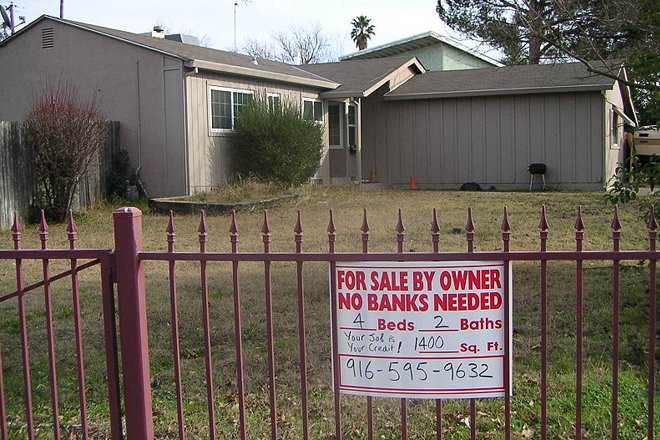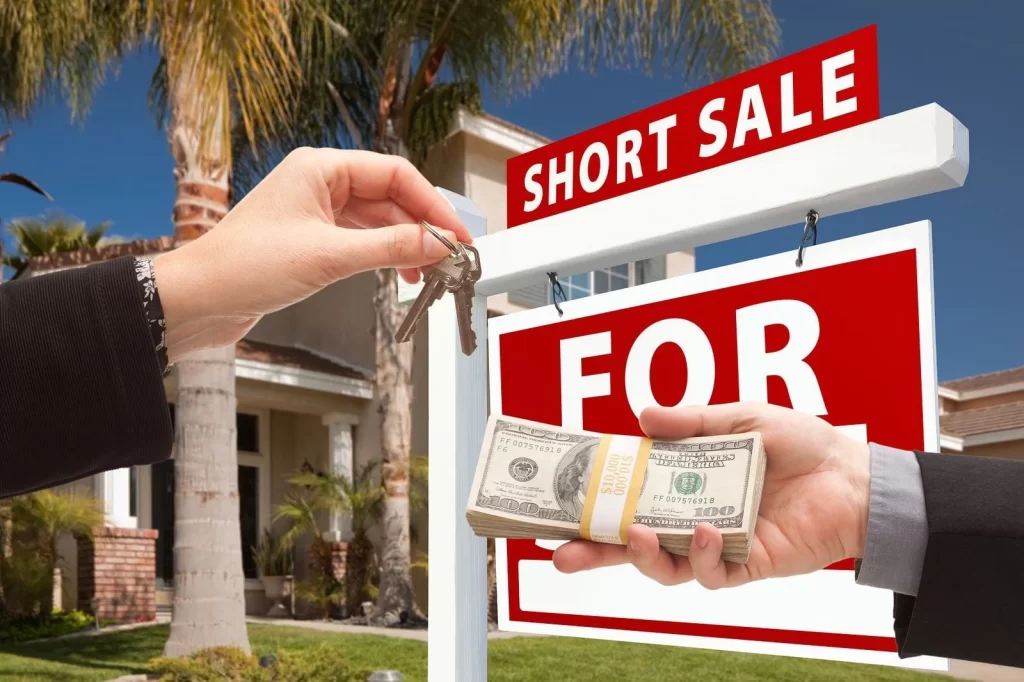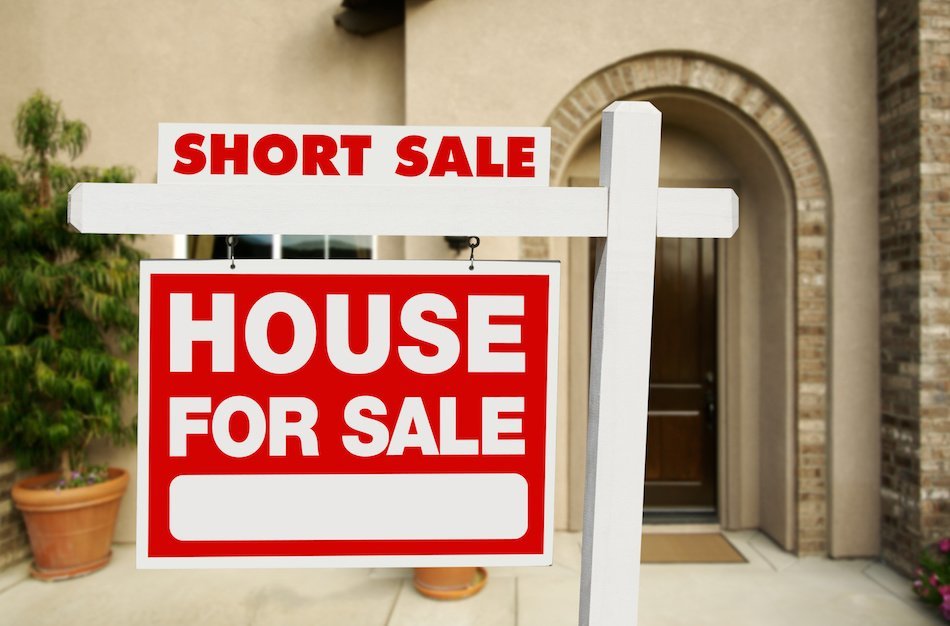If you’ve browsed through property listings online, it’s likely you’ve run across a “Short Sale” label on some. This label might not mean much to you as you look at other aspects of the home, like the space, how many rooms or its location, but if the home becomes one that you’re interested in, it can affect your purchase greatly. Short sales can be a mixed bag for buyers; and while there are definite benefits to purchasing a short sale property, there are some details you should know about before buying.
A short sale is when the money obtained from the sale of a home isn’t enough to cover the debt owed on the home. So, if a homeowner can only sell their house for $175,000, but has a mortgage on it that’s $250,000, they would need to sell the home in a short sale. The homeowner would also need to be in default on their loans (not being able to make payments on the house) and have the mortgage company approve this in order for it to be an actual short sale
So, what exactly does that mean as a buyer? There are a lot of things both good and bad you need to know if you’re considering purchasing a short sale for a home.

What should I know before buying a short sale?
Time frame: It can be slow or fast.
Before you decide you want to buy a home that’s being advertised as a short sale, Research. Ask the seller what stage they are at in the process of a short sale. Some homeowners panic and think they should put the home up for a short sale immediately after coming into some financial hardship. If they haven’t defaulted on their loans, though, then a short sale won’t be approved. If they haven’t even begun discussing the option with the bank, you could be in for a long ride that has a high probability of ending in you not getting the home. If they talk to their bank they could find a solution that would let them keep the home.
Also, depending on how many companies have liens on the home, coming to a decision to approve a short sale can take a long time. The process could take so long that the home goes into foreclosure, effectively making the seller obsolete. the bank would own the house now, and the seller has no way to sell the home to you.
It could take months to receive a response from the seller’s bank. Short sales happen gradually,then suddenly. A buyer who must move into a home within 60 days of submitting an offer should seriously consider making an offer on a property that is not a short sale. The closing date is hard to predict early in a short sale negotiation process. Furthermore, there is a risk that a short sale may not be approved, and the buyer may not learn of this until weeks have passed. Anyone who wishes to buy a short sale should be patient and not under pressure to move in soon.

The Sale May Not Go Through
If the sale price in the Agreement of Sale is too low relative to the lender’s valuation, the short sale will not be approved. If the bank’s valuation is too high, then no buyer will pay enough to meet the lender’s desired amount. If the property is listed too high by the agent, then buyers may not be interested enough to make an offer. If the seller does not submit the paperwork the lender requires, then the short sale will not be approved. If the buyer becomes impatient and backs out of the deal, then the transaction is unlikely to happen. If the foreclosure sale date is in the near future, the bank may simply allow the property to be sold at the foreclosure auction. If the lender’s staff is overwhelmed or inexperienced, they may prevent the short sale from being approved.
You’ll Need a Home Inspection . But the Property is As-Is
Neither the seller nor the lender is likely to make repairs to the property. Many short sale properties have deferred maintenance, as the seller may stop paying for maintenance as money becomes tight. By the time the sale occurs, many short sale sellers are either unable or unwilling to pay for repairs. They realize that every dollar they spend on the property is a dollar they will not receive back. If a buyer wants to purchase a short sale and the property requires repairs before the buyer’s bank will lend any money, the buyer should find a way to make the repairs themselves or find
a different property to buy. There is a risk to the buyer repairing a house before they purchase it or obtain a short sale approval to purchase it. If the buyer improves the house and the short sale fails or the buyer opts to walk away, then the buyer will have wasted their time and money on a house they will not own. Furthermore, few contractors will work on a property and wait to be paid at closing.

Unfortunately with a short sale (or foreclosure) property, the home won’t be pristine and perfect. Any home you purchase that’s been lived in before will have slight problems just from having someone live in the home and use the systems and appliances inside. That’s why you always get a home inspection to understand what condition the home is in and, with a normal sale, have the seller reduce the sale of the home or repair the problems before you purchase the property.
With a short-sale home, a seller is already losing money on the sale of the home, and doesn’t have enough money to repair or replace broken appliances. The home will be sold as an “as-is”property, so what you see is what you get. If there are major problems with the house you will have to take responsibility to fix them.
Short sale homes often have more problems than normal sales, too. When a seller doesn’t have enough money to pay the mortgage every month, they definitely don’t have enough money to pay for repairs or even maintenance of their systems and appliances. Add the fact that most sellers could be heartbroken about leaving their home that they take it out on the property, and you could end up with a home in need of major repairs. This isn’t as common as it is with foreclosures, though, so you could be better off with a short sale.

Be prepared to pay a little more at closing, as last-minute payoffs creep up that the seller and their bank may not pay.
As the final fees and costs are tallied on the Settlement Statement, there is a possibility that someone will have to pay more than expected. A water bill that is higher than planned, a late fee added to a delinquent lien, or a property tax credit that is smaller than anticipated could increase the seller’s costs. However, the seller may not have the funds to pay the extra cost, and the bank may be unwilling to take less to cover the shortfall. That may mean the buyer has to pay a little more just to ensure that the transaction occurs. The buyer should be prepared to absorb several hundred dollars in additional costs just in case.
Buying a short sale isn’t all bad, though. There’s a reason many potential buyers decide to go with a short sale instead of a normal home sale.
You Can Get a Short Sale for a Lower Price
Because the home is in a possible bad condition, you could get the home for a lower price. Just like if you were looking at fixer-uppers, your price point will be lower for a home because it’s not in the best condition.
You Can Increase Equity Quickly and Sell for Profit
If you purchase a short sale, you can increase the equity of the home just by cleaning up the property. If you’re aware that you’ll be doing clean up and repairs to the home (which you should know what you’re getting into if you get a home inspection before buying) you can be set up to increasing your equity dramatically. Before buying, list out everything that has to be repaired and replaced and price out how much money you will have to pay to get everything done. Begin chipping away at the list bit-by-bit. After finishing the repairs and updates, you can either sell the home for a major profit, or keep living in it if you love where you live.

With a Good Real Estate Agent, the Process Can Go Smoother
Before venturing into a short sale, make sure to find an experienced real estate agent who is fluent in all things short sales. Many banks will only consider a short sale if the property is listed by a licensed agent. The banks know that an agent will be able to market the property on a wide scale. The banks also realize that agents will disclose known defects about the property. Agents will disclose to buyers that the transaction is a potential short sale. Furthermore, many agents will provide guidance to the seller on which offer to accept. Make sure your seller has an experienced short sale listing agent as well. Mortgage lenders may wish to talk with a listing agent about the short sale, with the expectation that the agent would be more credible than the seller. A seller might be too emotional or inexperienced to deal with the bank’s negotiator. This will make sure that your short sale experience goes smoother than dealing with a short sale and an inexperienced realtor.
For more information on Short Sales contact us at:
Phone: 833-534-0614
Email: info@significashortsales.com
Website: www.significashortsales.com
Facebook: https://www.facebook.com/SignificaShortSales
Twitter: https://twitter.com/Significass/
LinkedIn: https://www.linkedin.com/company/significa-short-sales/


